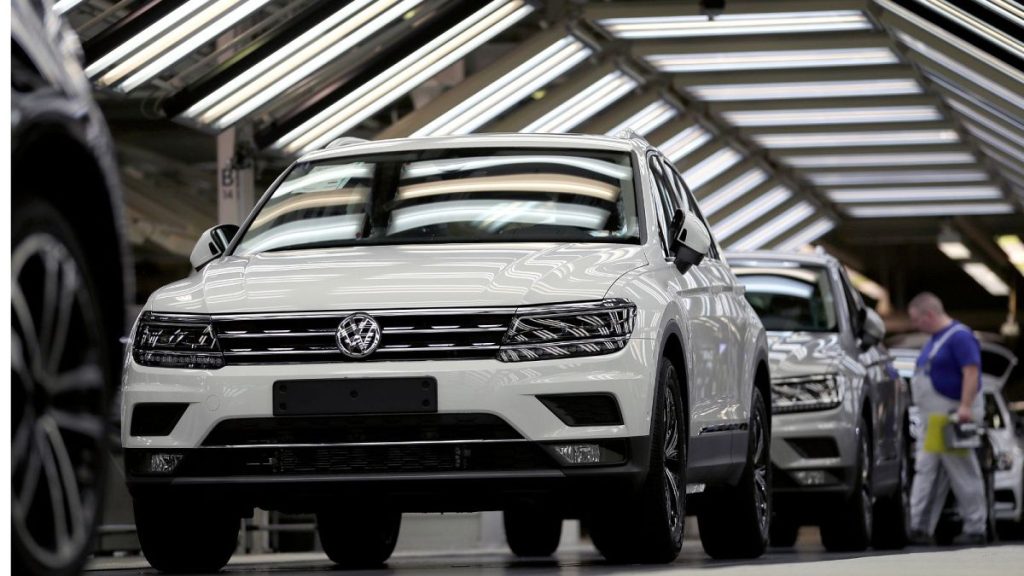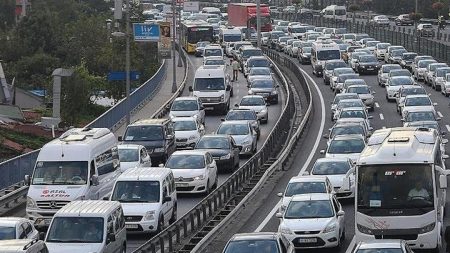The European car industry is facing a range of challenges, including the transition to low carbon technologies, supply chain disruptions, competition from Asia, and decreased demand for electric models. MEPs recently held a debate on the crisis affecting the industry, focusing on the issue of electric vehicles and the EU’s target for zero-emission vehicles by 2035. The legal limit for cars’ CO2 emissions is set to be reduced by nearly a fifth next year, but the industry claims it cannot meet this deadline due to a drop in electric sales. However, Brussels remains committed to promoting electric vehicle production, emphasizing the need for a fair transition and maintaining competitive edge in the global market.
Executive Vice-President of the European Commission, Maroš Šefčovič, stressed the importance of meeting the target for zero-emission vehicles, citing predictions that one in five cars sold in 2024 will be electric. Despite his remarks, some MEPs criticized the focus on electric cars as a ‘dead end’, advocating for a broader mix of technologies. The European car manufacturers also face pressure from China, which has a strong foothold in the European market due to its ability to produce electric cars at a lower cost. MEP Mohammed Chahim called for flagship projects to make electric cars competitive again, such as investing in the European battery industry to create quality jobs, support local economies, and reduce reliance on external powers.
The approval of EU tariffs on Chinese-made electric vehicles has not deterred China’s dominance in the European market, with its cheaper electric cars and advanced technology outpacing European manufacturers. The EU has requested a report stating that an investment of up to 800 billion euros is needed to lead the bloc through a clean energy transition and effectively compete with global trading partners. The European car industry must find ways to remain competitive and meet the increasing demand for low carbon technologies, while also addressing supply chain challenges and competition from other regions.
The European automotive industry is at a crossroads, with pressure to meet emissions targets, transition to electric vehicles, and compete against global rivals. Manufacturers are struggling to meet the upcoming legal limit for CO2 emissions, which has been set in alignment with the EU’s goal of achieving 100% zero-emission vehicles by 2035. The industry is facing criticism for falling behind China in electric vehicle production and delivery, as Chinese electric cars are cheaper and more advanced. European legislators are debating the best course of action to support the European car industry and ensure its competitiveness in the global market.
The conversation surrounding the European car industry’s crisis is centered on the need for a transition to electric vehicles, reduced emissions, and increased competitiveness in the global market. While the EU has set ambitious targets for zero-emission vehicles, manufacturers are struggling to meet these goals due to supply chain disruptions and decreased demand for electric models. China’s dominance in the electric vehicle market poses a significant challenge to European manufacturers, who are urged to invest in flagship projects like the European battery industry to reduce dependencies on external powers and create quality jobs. The European car industry requires substantial investment and strategic planning to navigate the clean energy transition and maintain its competitive edge.
In order to address the challenges facing the European car industry, MEPs must work collaboratively with manufacturers, investors, and other stakeholders to develop a comprehensive strategy for transitioning to low carbon technologies and promoting electric vehicles. The EU’s target for 100% zero-emission vehicles by 2035 is ambitious but essential for reducing emissions and maintaining competitiveness in the global market. By investing in flagship projects like the European battery industry, the industry can create quality jobs, support local economies, and reduce dependencies on external powers. The European car industry must adapt to the changing landscape of the automotive sector, overcome supply chain disruptions, and compete effectively against global rivals to secure its future in the low carbon economy.















